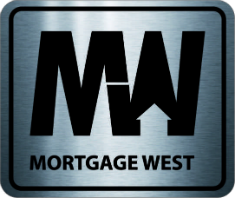In Canada, space heating can account for up to 60% of most homeowners’ energy bills. This is especially true with older homes, which can often be drafty, lightly insulated and may still have older, less energy-efficient windows, doors and heating systems. This can add up to substantially higher home heating costs.
One of the best ways to cut down on your bills and keep your house warm in the winter and cool in the summer is by making sure your home is well sealed. Canada Mortgage and Housing Corporation (CMHC) offers the following tips on how to improve the airtightness of your home, in order to help you save money, reduce your environmental footprint and make your house more comfortable to live in.
Air sealing not only cuts heat losses and gains, but it also improves comfort by reducing drafts, helps improve the performance of the insulation in your walls and attic by stopping cold winter wind from washing through it, and it can help prevent moisture build-up in your walls and attic.
Finding air leaks can often be a challenge. Sometimes they’re detectable by feeling for cold drafts in suspect locations. Other times, you may be able to see daylight shining in through unwanted openings. Blackened insulation is often another sign. For a more thorough assessment, consider hiring a qualified residential energy service provider to perform a “blower door” test of your house. During this test, your house is forced to leak, making it easier to find air leakage locations with smoke emitting devices or a special thermographic scanner.
A blower door test can also tell you the size of the hole all the leakage areas would add up to if they were all centralized in one location. This is helpful when you want to know how leaky your house is relative to other houses. If a blower door test is done before and after air sealing, you can also find out how much you’ve reduced the air leakage of your home.
Some of the more common air-leakage points can include: ceiling pot light fixtures installed through ceilings into attic spaces, electrical boxes in ceilings and exterior walls; inside to outside wiring, plumbing and duct penetrations; bathroom exhaust fans installed in attic ceilings; older windows and doors; the joint between windows and the surrounding walls; and floor-wall joints.
Once you have located the leaks, you can use a variety of different approaches to seal them. For instance, leaky windows and doors can be sealed with gaskets or new weather stripping. Gaps around wiring, pipes and ducts can be sealed with caulking or spray foam. Electrical boxes can be sealed with special gaskets that fit behind the box plate covers. Joints between walls and floors and around the top of your foundation may be sealed with caulking or spray foam depending on the size of the gap. To find out the right options for your home, be sure to consult a contractor with expertise in air leakage control.
If you’re replacing your exterior siding, it’s a good time to add an exterior air barrier (and more insulation) that wraps your house in a draft-proof cover from the basement to the attic.
While air sealing is always a good idea, you may have to add mechanical ventilation in the form of a bathroom fan, range hood or, better yet, a heat recovery ventilation system, to help maintain healthy indoor conditions.
Air sealing can also adversely affect the ability of some fuel-fired furnaces, boilers and hot water tanks to safely vent combustion products, so an additional source of outdoor air may be needed. Consult a qualified mechanical contractor for guidance on ventilation system options and combustion air needs for your home before you start.




















